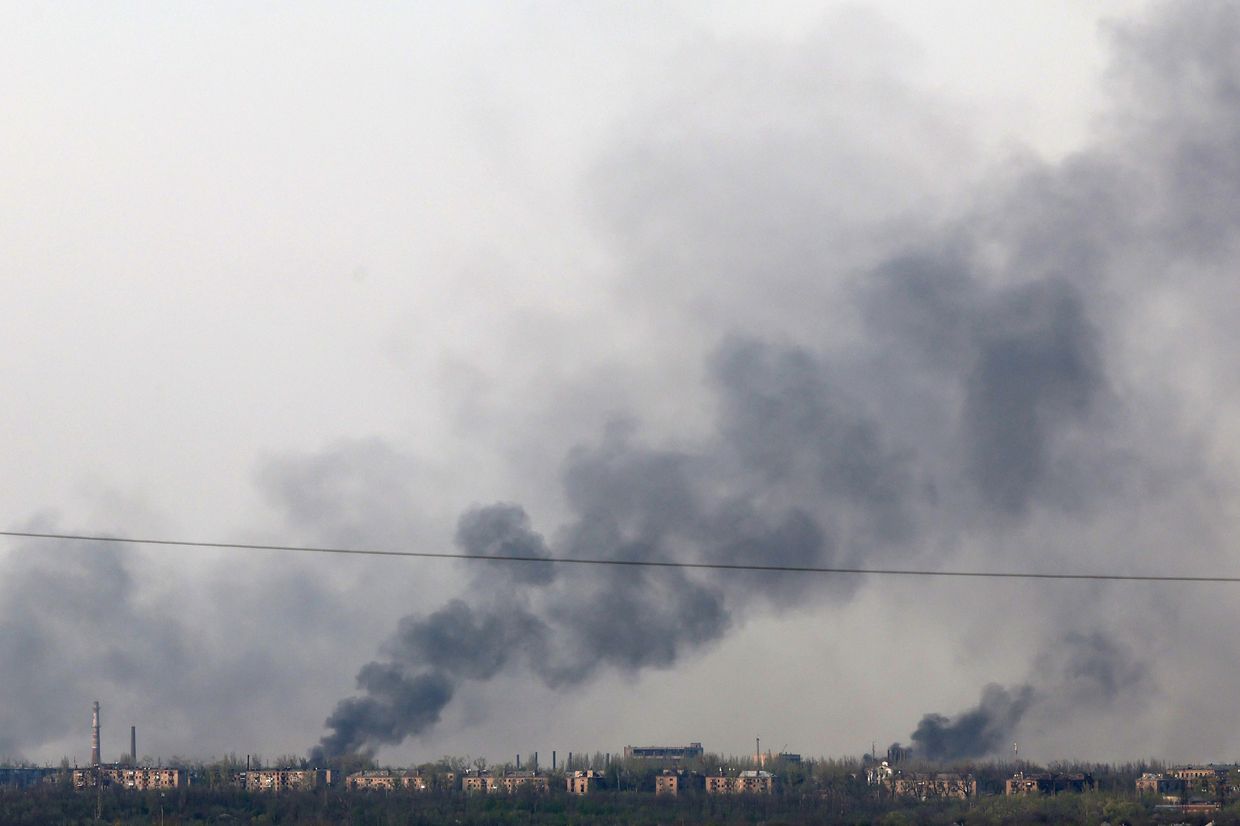Ukraine strikes Russia's Saratov oil refinery, military confirms

Ukrainian forces struck Russia's Saratov oil refinery in a strike overnight on Feb. 11, the General Staff of Ukraine's Armed Forces said after reports of drone attacks in the region.
Unverified videos posted to social media showed a large fire and search lights raking the sky reportedly in the vicinity of the refinery.
"The refinery mainly produces gasoline, fuel oil, and diesel fuel. In total, more than 20 types of oil products (are being produced there)," the General Staff said, adding that the facility supplies Russian occupation forces in Ukraine.
Saratov, russia. Oil refinery on fire for some reason. pic.twitter.com/NrTmiFSkjJ
— Kate from Kharkiv (@BohuslavskaKate) February 11, 2025
The Ukrainian military reported a confirmed hit and a fire at the Rosneft facility. The full extent of damage is being determined, it added.
The attack was carried out jointly by the Unmanned Systems Forces, the military intelligence agency (HUR), and the Special Operations Forces, as well as other units, according to the statement.
The confirmation of the attack on the Saratov oil refinery came after earlier reports of a drone attack against the oil refinery lying some 1,500 kilometers (930 miles) from Ukraine's border.
The Russian Telegram news channel Shot also reported at least 11 explosions over Engels, a city lying across the Volga River from Saratov.
The Russian strategic aviation airbase Engels-2, which has been repeatedly targeted by Ukrainian long-range strikes, lies in the vicinity.
"The Saratov Oil Refinery is one of the key facilities in Russia's fuel infrastructure. Its refining capacity reaches 7 million tons of oil annually," said Andrii Kovalenko, head of Ukraine's Center for Countering Disinformation, adding that the refinery is crucial in supplying fuel to the Russian military.
Ukraine has increasingly targeted Russian energy infrastructure, including oil refineries and fuel depots, to disrupt supplies to Russian forces. The strikes are part of a broader strategy to weaken Russia's military logistics and economic resilience amid the ongoing war.
In particular, Kyiv has stepped up long-range attacks this winter. Recent drone strikes hit a refinery in Ryazan, a distillery in Tambov Oblast, and a chemical plant in Bryansk. The Ryazan Oil Refinery, one of Russia's largest, later suspended operations due to the damage.
Russia's seaborne exports of petroleum products declined by 9.1% to 113.7 million metric tons in 2024, reflecting mounting challenges to its fossil fuel industry, including Ukrainian drone strikes, Reuters reported on Jan. 17.
Russian refineries reportedly processed approximately 267 million metric tons of oil in 2024, the lowest since 2012, as rising production costs, falling prices, and an export ban on gasoline strained operations.
Exports through Baltic ports fell by 9% to 61.96 million tons, while shipments via Black and Azov Sea ports dropped 10% to 42.75 million tons.
Notably, exports from Tuapse plummeted by a third to 9.1 million tons, largely due to drone attacks and operational disruptions at state-owned Rosneft refineries.













